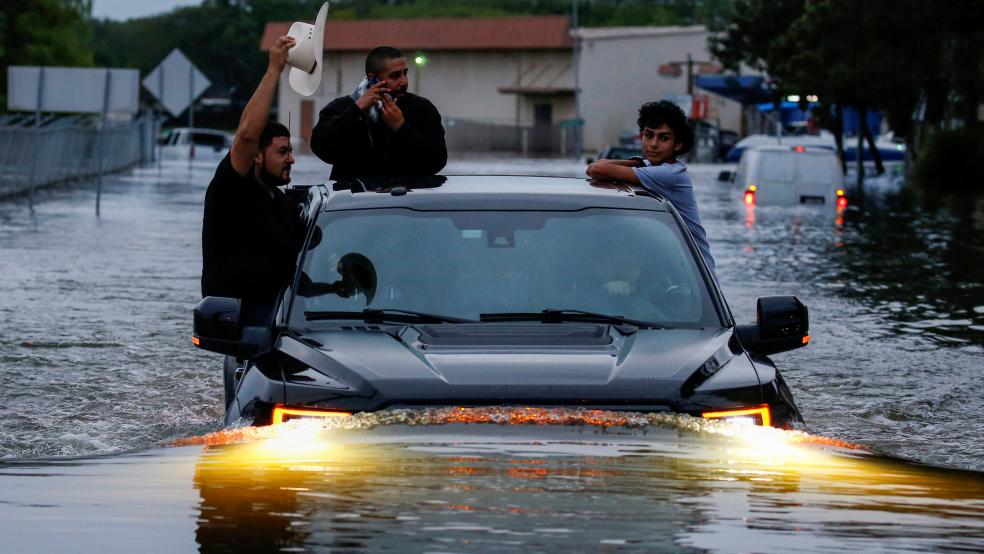The costs of Hurricane Harvey could climb as high as $100 billion, according to at least one estimate. While it will still take weeks for the full extent of the damage to become clear, the catastrophic flooding — and a recovery effort that is likely to take years — will almost certainly have an impact on some critical upcoming deadlines for lawmakers in D.C.
White House and congressional GOP officials told The Washington Post on Sunday that they expected to begin discussing emergency funding for disaster relief soon. Those discussions could present challenges for other items on President Trump’s agenda, from tax reform to a border wall with Mexico.
President Trump had threatened to shutdown the government if any funding bill failed to include money for the border wall with Mexico. But the need for disaster relief funding — and the political risk of failing to deliver such funding — could force the president and Congress to act more quickly to fund the government and avoid a partial federal shutdown. “That is because a government shutdown could sideline agencies involved in a rescue and relief effort that officials are predicting will last years,” Mike DeBonis and Damian Paletta of The Washington Post report.
Related: Trump Says He’s Willing to Shut the Government to Get His Wall
The balance of the Federal Emergency Management Agency’s disaster relief fund stood at just $3.8 billion at the end of July — with $1.6 billion of that money set to be spent elsewhere. The funds needed for Harvey recovery alone may well exceed the total disaster relief budget for the current and upcoming fiscal years, The Post noted. Also, Congress must reauthorize the National Flood Insurance Program, which is more than $24 billion in debt, by the end of September and ensure that its legal borrowing limit, now around $30 billion, is sufficient to cover expected claims from Harvey victims.
William Hoagland of the Bipartisan Policy Center, who served as a former GOP staff director for the Senate Budget Committee, said the hurricane could also lead to the debt ceiling being raised faster than it otherwise might have been so as to ensure that the Treasury can provide emergency cash to storm-hit areas.
That’s not to say the disaster relief funding won’t devolve into a congressional fight. Both Hurricane Katrina in 2005 and Superstorm Sandy in 2012 led to budget fights in Congress in which Republicans resisted disaster funding that wasn’t offset by other spending cuts.





